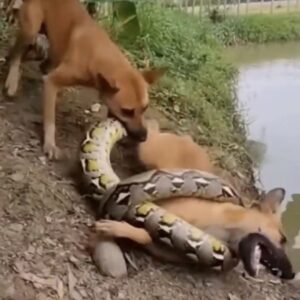“Cherry Eye” is a term used to describe the prolapse of the third eyelid gland, which is normally located in the inner corner of the eye. This gland produces a significant portion of the eye’s tear film and is usually invisible. However, when the ligaments that hold it in place weaken or tear, the gland swells and protrudes, taking on the appearance of a small cherry — hence the name “Cherry Eye.”
This condition is most commonly seen in dogs, particularly breeds such as Cocker Spaniels, Bulldogs, and Beagles. In cats, it is much rarer and often not immediately recognized by pet owners.
A veterinarian explains that in this particular case, the gland is not fully prolapsed but shows a swelling that resembles Cherry Eye, suggesting inflammation or an extension of the inner part of the third eyelid. This can result from:
• Ocular infections
• Allergies
• Irritation caused by dust particles or foreign bodies
• Minor trauma
• Viral or bacterial diseases in cats
The gland is very sensitive, and any inflammation or pressure can cause it to appear raised and swollen, as seen in this situation.
Treatment depends on the exact cause:
• If it’s an infection, antibiotic eye drops are used.
• In mild cases, eye flushing and cleaning with a special solution may help.
• In more advanced cases, surgery may be needed to reposition the gland (as is done with cherry eye in dogs).
It is extremely important for the pet owner not to attempt any treatment themselves and to consult a veterinary ophthalmologist as soon as any unusual change is noticed in the cat’s eye.
“If you thought this was Cherry Eye, you’re only half right — it looks similar, but we’re dealing with something more delicate that requires careful treatment.”
This situation serves as a reminder of the importance of regular veterinary check-ups, even when symptoms may not seem serious. Eyes are among the most sensitive organs in animals, and even the smallest change should be taken seriously.
If you have a cat or dog and notice an unusual swelling in the eye, don’t wait for it to go away on its own — consult your veterinarian immediately.
1e93b0b217bc4b1ebead8cf19fd4d904





